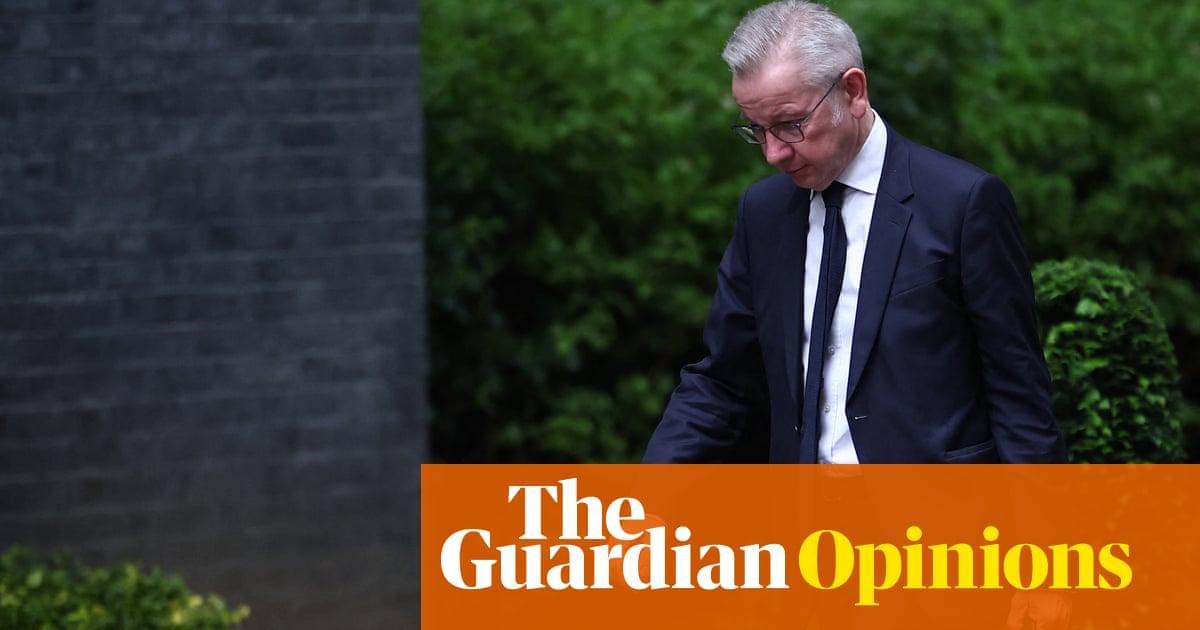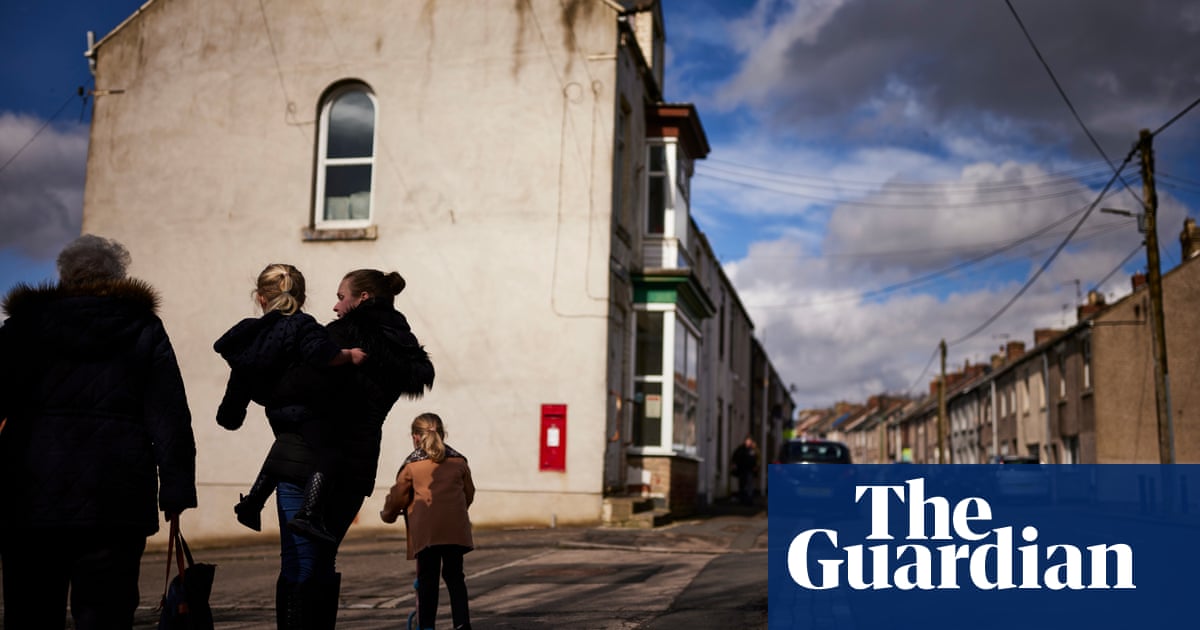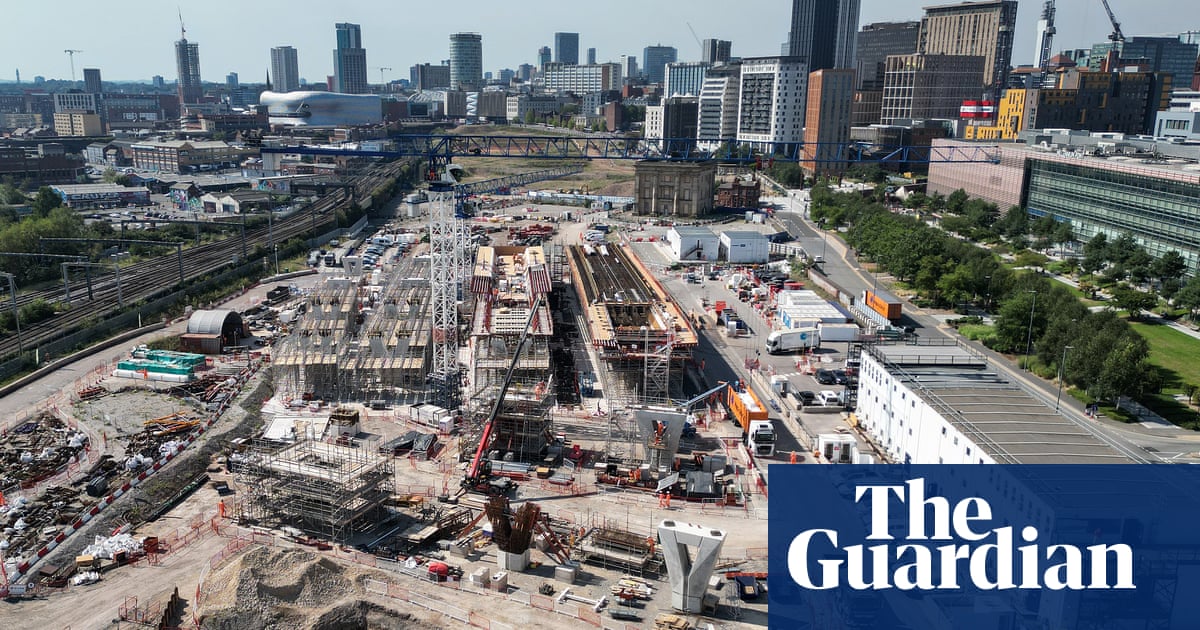
Michael Gove is chairing a new weekly cabinet committee on levelling up, to bang heads together across Whitehall, as the government battles to repair the political damage of the past three weeks and show it is serious about tackling economic inequalities.
After a tumultuous period that culminated in the prime minister’s fumbled speech to the CBI on Monday, the forthcoming levelling-up white paper, expected to be published in mid-December, is regarded as a key moment to demonstrate the government’s seriousness.
Gove had publicly argued for a new committee structure to ensure levelling up is implemented across government, and has won the backing of the prime minister for that approach.
He was given the levelling-up brief in Boris Johnson’s September reshuffle in a move widely regarded at the time as underlining the importance placed on it by the prime minister.
However, Labour’s deputy leader, Angela Rayner, will accuse the government of “selling out the north” on Saturday, after the scaling-back of the integrated rail plan and the introduction of the social care cap, which she will call “a dementia tax on working-class people and a dementia tax on the north”.
She will criticise the rail plans, which also disappointed many Conservative MPs. “The government’s rail plan is a betrayal of trust, a betrayal of promises made to our communities and a betrayal of the north,” she will tell Labour’s North West conference.
“Only the Conservatives would call a train line that stops on this side of the Pennines a trans-Pennine rail line. It’s like the Eurostar stopping at Dover and then you get on a Pacer train across the Channel.”
Government sources rejected reports on Friday that the Treasury had blocked additional funding for levelling up, pointing out that the three-year spending review was only delivered last month, and there had been no additional bid from Gove’s department since then.
However, there have been tensions between the chancellor, Rishi Sunak, and No 10 in recent days, with the Treasury frustrated at a series of botched announcements of major policy decisions.
Scores of Conservative backbenchers refused to back detailed plans for the social care cap on Monday amid fears they will disproportionately penalise families with modest assets.
The levelling-up white paper is regarded as a potential reset moment for the government. Gove has suggested the aim of the policy is to help young people to “stay local and go far”, by creating more opportunities outside London and the south-east.
It has been drawn up with detailed input from Neil O’Brien, formerly the prime minister’s levelling-up adviser and now a minister in Gove’s department, and former Bank of England chief economist Andy Haldane.
It is expected to set out new proposals for devolution, including powerful county mayors, and a shake-up of the boundaries of existing mayoralties.
Gove told the levelling-up select committee in a hearing on 8 November: “Without wanting to pre-empt the white paper in detail, we will be looking at mayoral combined authorities. Should their geography change, ie grow?”
It is understood there are concerns in government that some mayoralties, including those in Bristol and North Tyne, do not match the local economic geography, making them less effective than some other models of devolution. However, government insiders said the policy document would set out a “framework” for more devolution, with final details only to be agreed in consultation with local leaders.
Other themes are likely to include skills, transport and investment – but not planning, with controversial reforms to the planning system still on “pause” as they are reconsidered in the light of the Conservatives’ loss of the Chesham and Amersham byelection. Revised proposals are now not expected to be published until the new year, the Guardian understands.
Johnson has suggested that levelling up is the central idea of his government, but he was criticised for a keynote speech on the issue in July that contained little new policy.
The new cabinet committee, which it is understood has already met twice, is a subcommittee of the government’s domestic and economic strategy committee.
The chief secretary to the Treasury, Simon Clarke, is its deputy chair, and ministers from across government will be asked to attend where their department’s work is relevant to the aspect of levelling up being discussed.












